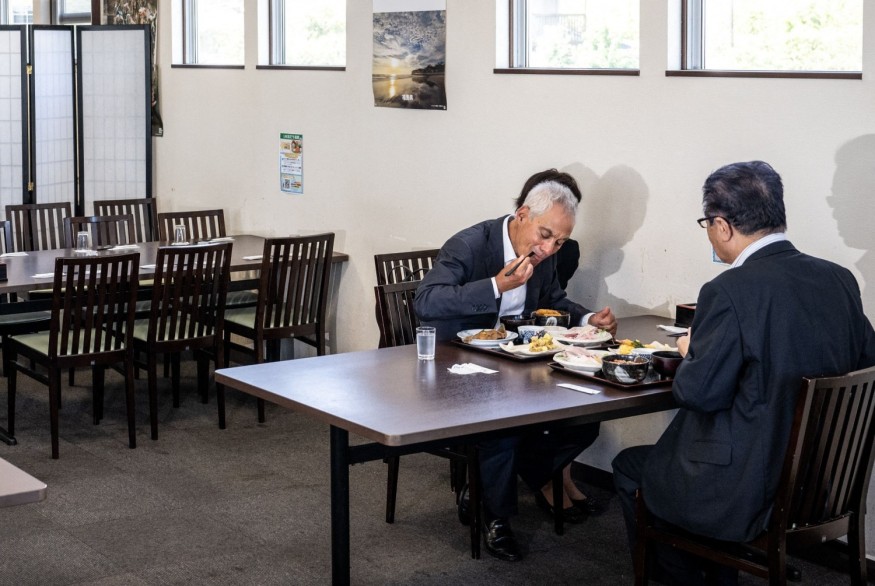
Japanese ministers dined together over sashimi made from fish caught after water from the Fukushima nuclear power plant was released to alleviate concerns.
Japanese Ministers Sharing Fukushima Sashimi
This week, Prime Minister Fumio Kishida and three other high-ranking Japanese officials ate Fukushima sashimi to alleviate concerns over fish safety after treated radioactive water was released from the nuclear plant. Economy and Industry Minister Yasutoshi Nishimura noted the Wednesday lunch included flounder, octopus, and sea bass caught off Fukushima's coast, along with local rice.
Can’t wait to try the kojizuke. Also picked up some peaches, pears, and grapes from the JA farmer’s market for dessert. And let’s be clear—I’m not sharing the grapes. @soma_city #Fukushima pic.twitter.com/Oc3fH47KYf
— ラーム・エマニュエル駐日米国大使 (@USAmbJapan) August 31, 2023
The aim is to bridge the gap between reassurance and safety. Prime Minister Kishida found the seafood "safe and delicious," and US Ambassador Rahm Emanuel also dined in Fukushima without security concerns.
1 Million Metric Tons of Treated Wastewater
Japan recently began releasing water from Fukushima Daiichi, the site of a major nuclear disaster, intending to discharge over 1 million tons of treated wastewater into the Pacific Ocean within 30 years. Despite reassurances from authorities and the International Atomic Energy Agency on safety, concerns linger. Tritium levels, a rare radioactive isotope, in the water, are deemed too insignificant to be dangerous by scientists.
The move faced resistance from Japanese fishing groups fearing harm to their goods' reputation due to radioactive stigma. The neighboring country, China, has banned Japanese seafood imports, igniting state-supported outrage and amplifying tensions with US-aligned nations amid regional divisions. The US ambassador criticized China's decision as overtly political after visiting Fukushima and joining the said lunch meeting.
Support From Other Countries
South Korea's President Yoon Suk Yeol supported concerns about safety in eating Japan's fish by sharing a seafood lunch with his staff to demonstrate its safety amid Japan's water release plan. Japanese authorities argue water discharge is essential for the Fukushima plant's eventual decommissioning after the 2011 quake and nuclear meltdown.
Japan's prime minister plans to aid Fukushima's fishing industry, which is still recovering from reputation damage and economic worries due to the water release. Makoto Takahashi from Vrije Universiteit Amsterdam explained that treated water with trace tritium is commonly released globally, but Japan's plan could harm its economy. Fukushima's recovery progress, including tighter safety measures, faces threat from the release's impact.
Dispelling Worries and Rumors
The Japanese government's call for support against reputation damage has led to increased backing for Fukushima businesses across the nation. The hometown tax program, allowing taxpayers to donate to a chosen city, resulted in almost sevenfold donations to Iwaki following the Fukushima wastewater post-release.
Iwaki's Mayor Hiroyuki Uchida aims to convert this backing into strength to dispel rumors. Vendors outside Fukushima have also promoted region-specific fish sales. Aeon, a Japanese supermarket chain, established Fukushima fish sections in 21 Tokyo-area locations and pledged continued support for seafood from Fukushima after the water release.
Related Article : Japan Poised to Release 1.3M Tonnes Treated Wastewater From Fukushima Nuclear Plant
© 2025 NatureWorldNews.com All rights reserved. Do not reproduce without permission.





